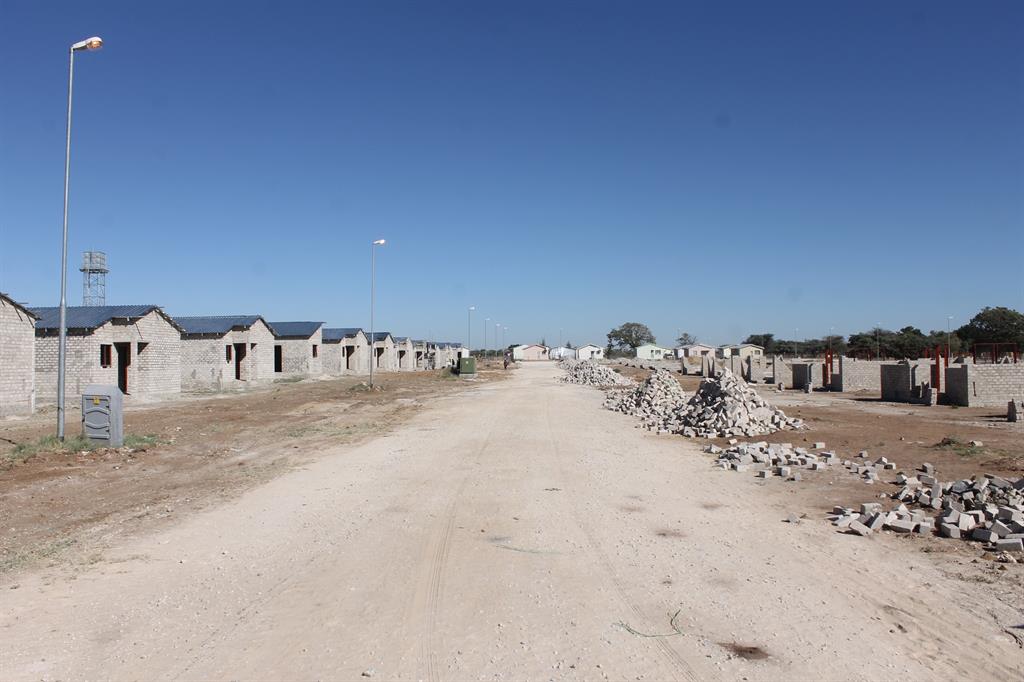Land is too expensive
The Namibian government has recognised that a large section of people still do not have access to land and decent shelter because it is unaffordable, urban and rural development minister Peya Mushelenga said this week.
Speaking during the official opening of a high-level consultative retreat with governors, mayors and senior administration officials of local authorities at Walvis Bay, he said this is one of the major challenges the ministry faces.
The minister said the affordability of land has become a key issue, especially in developing nations, where the majority of the population is not able to buy serviced urban land or houses at market prices.
“For this reason, the ministry has embarked on addressing these problems through the Massive Urban Land Servicing and Mass Housing Development programmes, initiatives which call for the involvement of both the public and private sector,” he said.
The three-day meeting is aimed at enabling the ministry and its management to engage the officials with a view toward developing a sense of togetherness and teamwork.
Mushelenga gave his assurance that the government will continue to provide budgetary support to regional councils and local authorities to service land and develop other basic services, in keeping with the Harambee Prosperity Plan and national development targets.
Other challenges faced by the ministry include the high rate of open defecation in rural areas and informal settlements, for which statistics stand at 70%.
“This situation is not only a health hazard, but also compromises people's human dignity,” he said.
Other challenges and topics of discussion during the deliberations include poor governmental budget execution, poor coordination among offices and agencies, poverty and rural development.
Mushelenga said his ministry, along with regional councils and local authorities, is entrusted with the responsibility of meeting some of the fundamental needs of the people of Namibia.
“This enormous responsibility entails ensuring appropriate governance structures and coordinated efforts in bringing about development, as well as the provision of basic infrastructure and services that would ensure that Namibians live decent and dignified lives,” he noted.
He therefore emphasised that it is critical for the ministry and its departments to have structures in place and to work together in order to effectively execute this mandate.
NAMPA
Speaking during the official opening of a high-level consultative retreat with governors, mayors and senior administration officials of local authorities at Walvis Bay, he said this is one of the major challenges the ministry faces.
The minister said the affordability of land has become a key issue, especially in developing nations, where the majority of the population is not able to buy serviced urban land or houses at market prices.
“For this reason, the ministry has embarked on addressing these problems through the Massive Urban Land Servicing and Mass Housing Development programmes, initiatives which call for the involvement of both the public and private sector,” he said.
The three-day meeting is aimed at enabling the ministry and its management to engage the officials with a view toward developing a sense of togetherness and teamwork.
Mushelenga gave his assurance that the government will continue to provide budgetary support to regional councils and local authorities to service land and develop other basic services, in keeping with the Harambee Prosperity Plan and national development targets.
Other challenges faced by the ministry include the high rate of open defecation in rural areas and informal settlements, for which statistics stand at 70%.
“This situation is not only a health hazard, but also compromises people's human dignity,” he said.
Other challenges and topics of discussion during the deliberations include poor governmental budget execution, poor coordination among offices and agencies, poverty and rural development.
Mushelenga said his ministry, along with regional councils and local authorities, is entrusted with the responsibility of meeting some of the fundamental needs of the people of Namibia.
“This enormous responsibility entails ensuring appropriate governance structures and coordinated efforts in bringing about development, as well as the provision of basic infrastructure and services that would ensure that Namibians live decent and dignified lives,” he noted.
He therefore emphasised that it is critical for the ministry and its departments to have structures in place and to work together in order to effectively execute this mandate.
NAMPA




Comments
Namibian Sun
No comments have been left on this article